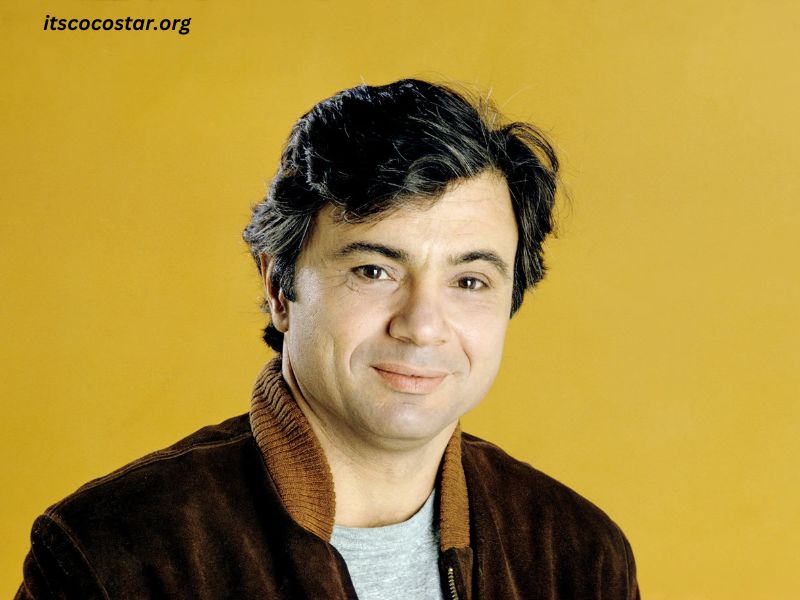Robert Blake, born Michael James Gubitosi on September 18, 1933, in Nutley, New Jersey, was an American actor who had a remarkable career spanning over six decades. Starting as a child star in the 1930s, Blake evolved into one of Hollywood’s most versatile actors. Known for his intense performances and troubled personal life, his work left an indelible mark on both movies and television. This article explores the key films and TV shows that highlight Blake’s legacy.
Early Life and Entry into Show Business
Blake’s career began at a young age. His family moved to Los Angeles during the Great Depression, and his parents enrolled him and his siblings in show business. Blake’s earliest roles came in the Our Gang (or The Little Rascals) comedy shorts, where he played the character Mickey from 1939 to 1944. This experience honed his acting chops and gave him a solid foundation for a long career in Hollywood.
Movies
1. Treasure of the Sierra Madre (1948)
At the age of 15, Robert Blake appeared in John Huston’s iconic film The Treasure of the Sierra Madre. He played a Mexican boy who tries to sell a lottery ticket to Humphrey Bogart’s character. Though his role was small, it showcased Blake’s natural talent and ability to hold his own alongside legendary actors.
2. Pork Chop Hill (1959)
Blake’s transition from child actor to adult performer was solidified in Pork Chop Hill, a Korean War drama directed by Lewis Milestone. Starring Gregory Peck, the film featured Blake in a supporting role as one of the soldiers. His performance contributed to the movie’s gritty realism and helped establish him as a serious actor.
3. In Cold Blood (1967)
Blake’s most critically acclaimed film was In Cold Blood, directed by Richard Brooks. Based on Truman Capote’s nonfiction book, the movie told the chilling story of the Clutter family murders. Blake played Perry Smith, one of the two killers, delivering a haunting performance that remains a benchmark in his career. His portrayal of the tormented and enigmatic Smith earned him widespread acclaim and showcased his range as an actor.
4. Electra Glide in Blue (1973)
In this unconventional police drama, Blake played motorcycle cop John Wintergreen, a character caught between his ambition and the harsh realities of the job. Directed by James William Guercio, the film explored themes of corruption and morality. Though it was not a box-office hit, Blake’s performance was praised for its depth and nuance.
5. Coast to Coast (1980)
In this romantic comedy-drama, Blake starred opposite Dyan Cannon. The film follows a mismatched couple on a cross-country adventure. While not as celebrated as his other works, it highlighted Blake’s versatility in lighter roles.
6. Lost Highway (1997)
Directed by David Lynch, Lost Highway marked Blake’s return to the big screen after a hiatus. In the film, he played a sinister and mysterious character known as the Mystery Man. His eerie performance added a layer of psychological tension to the neo-noir thriller, proving that Blake could still captivate audiences.
Television
1. The Adventures of Wild Bill Hickok (1951–1958)
Blake appeared in several episodes of this Western series, gaining recognition for his roles in the genre. Westerns were a popular television format during the 1950s, and Blake’s appearances in shows like Wild Bill Hickok helped him maintain visibility as he transitioned from child star to adult actor.
2. The Roy Rogers Show (1951–1957)
Blake also guest-starred in episodes of The Roy Rogers Show, another Western classic. These roles showcased his adaptability and solidified his reputation as a reliable character actor in television’s golden age.
3. Baretta (1975–1978)
Blake’s most iconic television role came in the crime drama Baretta, where he played Detective Tony Baretta, a streetwise cop with a pet cockatoo named Fred. Known for its gritty realism and Blake’s charismatic performance, the show became a cultural phenomenon.
Blake won an Emmy Award in 1975 for his role, cementing his place in TV history. The series is remembered for its memorable catchphrases, such as “Don’t do the crime if you can’t do the time,” and for its theme song, Keep Your Eye on the Sparrow.
4. Hell Town (1985)
In this short-lived drama series, Blake played Father Noah “Hardstep” Rivers, a priest who worked in a tough urban neighborhood. The show combined elements of crime and spirituality, giving Blake another chance to demonstrate his acting chops.
5. Blood Feud (1983)
This television miniseries featured Blake as Jimmy Hoffa, the controversial labor leader. Blood Feud chronicled Hoffa’s tumultuous relationship with Robert F. Kennedy. Blake’s intense portrayal earned him critical acclaim and showed his ability to handle complex historical figures.
Recurring Themes in Blake’s Work
Blake’s filmography often explored characters on the fringes of society, whether they were outlaws, detectives, or troubled individuals. His roles were marked by a raw emotional intensity that few actors could match.
His career also reflected his personal struggles, including battles with mental health and legal issues. These challenges added depth to his performances, making his characters feel authentic and multidimensional.
Legacy and Later Years
Despite his immense talent, Blake’s later years were overshadowed by his highly publicized legal troubles. In 2001, his wife, Bonnie Lee Bakley, was murdered, and Blake was charged with her death. Although he was acquitted in a criminal trial, a civil court found him liable, significantly tarnishing his reputation.
Blake retired from acting after Lost Highway and lived a reclusive life. However, his contributions to cinema and television remain undeniable. He passed away on March 9, 2023, leaving behind a complex legacy.
Impact on Film and Television
Robert Blake’s career is a study in contrasts. From the innocence of Our Gang to the chilling menace of In Cold Blood, he navigated Hollywood’s shifting tides with remarkable skill. His work on Baretta redefined television detectives, while his film performances earned him a place among the greats of his generation.
Despite his controversial personal life, Blake’s artistic achievements continue to inspire actors and filmmakers. His willingness to tackle challenging roles and push the boundaries of his craft ensures that his work will be remembered for years to come.
Conclusion
Robert Blake’s journey through Hollywood was anything but ordinary. With standout roles in both film and television, he established himself as a dynamic and unforgettable performer. From the haunting realism of In Cold Blood to the cultural impact of Baretta, Blake’s legacy is a testament to his extraordinary talent and resilience.
While his life off-screen was tumultuous, his on-screen contributions remain a significant part of Hollywood history, ensuring that his name will endure in the annals of entertainment.







